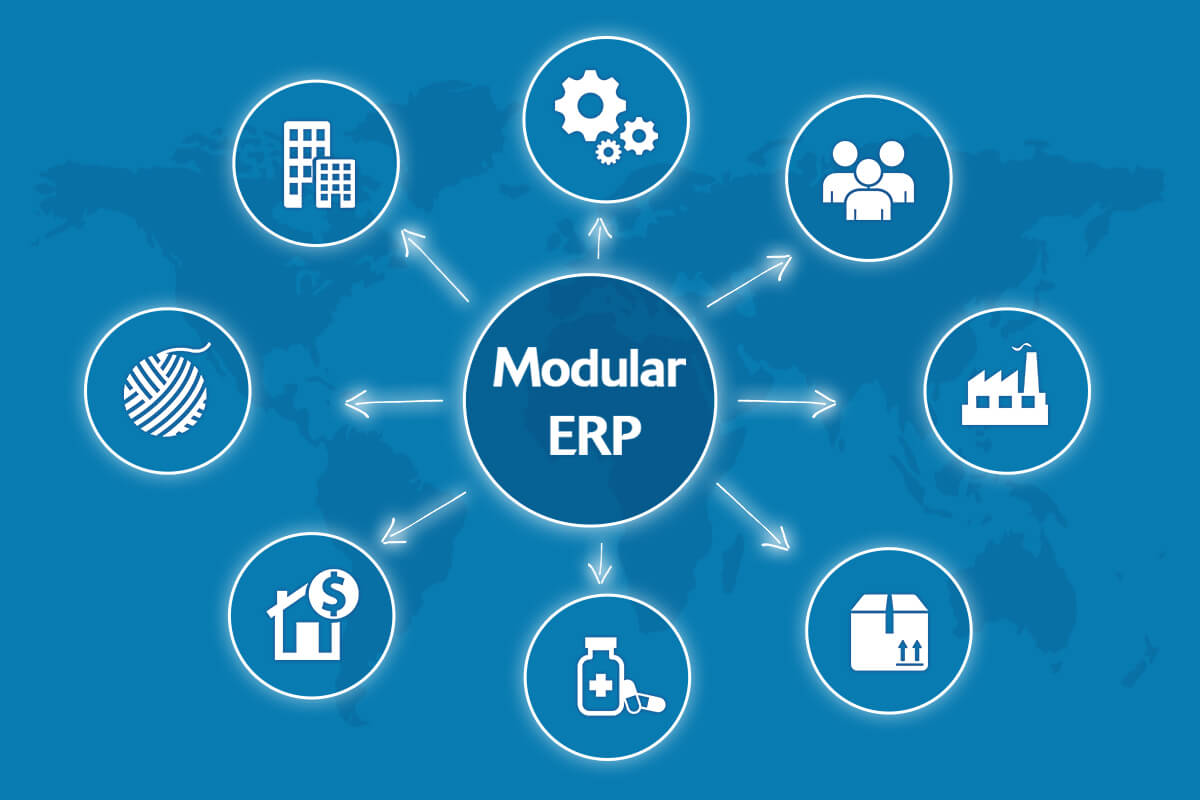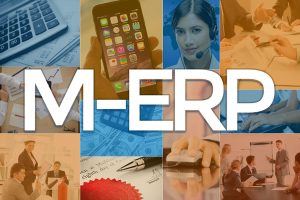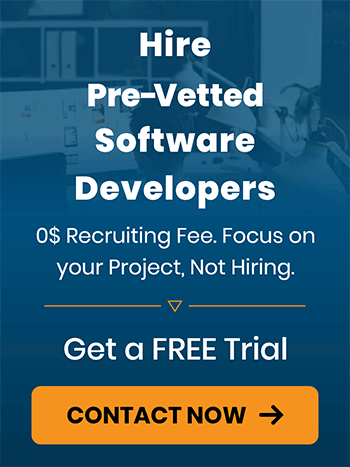
Modular Enterprise Resource Planning (M-ERP) is effective business management software applied over a wide array of companies to improve processes, productivity and profitability.
“Need for ERP has never been down. In 2015 we will be looking at more scalable, feature-rich, dynamic, mobile driven and ux rich ERP for MBs and LBs.”
Businesses need ERP systems that can optimize their workforce enablement to meet demands and generate new business opportunities. Vendors use M-ERP to create their own workspace due to it’s ease of use and engagement.
Modular ERP (M-ERP) provides an integrated view of core business processes in real-time. Modular ERP systems track business resources—cash, raw materials, production management—and the status of business commitments: orders and purchase records. It provides complete HR & Payroll management solutions. The applications that make up the system share data across the different departments (manufacturing, purchasing, sales, inventory, financial accounting, etc.) that provide the data.
2015 Trends that will likely influence ERP usage in your business…
1. ERP failures are still a huge risk – ERP failures aren’t going away anytime soon. Our experts create ERP predictions list each year since it brings new high-profile failures. ERP implementations are just too complicated and too risky for the success of all organizations, particularly those who are overconfident in their own talents or favor to grasp the help of subpar ERP consultants and system integrators.
2. Increasing difference between ERP success and ERP failure – ERP failures are here to stay. In contrast, there are still many success stories out there. The difference between the two opposites will continue to become more evident. The successful ones will be righteous in effective project management, business method reengineering and organizational change management, whereas the failures will still disregard or divest in those areas. The varied results between these two teams will become even more extreme.
3. User-friendly interfaces and easier implementation resulting in increased ERP products.
Although ERP systems are too complex, ERP products are increasing very rapidly. Vendors have also made their ERP products simpler for implementation. ERP software prices, compared to the cost of implementation, are much higher.
Making ERP products suitable for specific verticals would be recommended for software businesses, as it would result in reduced need for third-party customization solutions.
4. More educated ERP buyers
ERP buyers are becoming better educated about requirements to meet long-term business needs. There are plenty of free or inexpensive resources available to educate on how to make ERP implementation successful.
5. Additional ERP options for small business
The educated buyers aren’t only at enterprises anymore. Small businesses are stepping in the market, too, due to an increasing range of cloud-based ERP systems.
Small and fresher companies are also executing ERP platforms for efficient operations management from the start, instead of choosing spreadsheet based planning and logistics that will only hamper future growth.
6. Mobile and Cloud ERP Solutions
ERP vendors will add more web, mobile and cloud functions to their products in all sized business. To survive against market demand, vendors need to get mobile and cloud ERP solutions. Vendors must be versatile to changing work environments, technology and requirements.
7. Subscription pricing for enterprise software
Competitive pressures and new efficiencies will cause enterprise software system rating to still shift more toward subscription models, which provides security against malware.
8. Social intelligence getting smarter
In 2015, this ERP trend will still grow. Following conversations via social will let firms discover when a topic is starting to swing and what their customers are talking about. Social intelligence will permit firms to be more agile and reactive to client needs, desires and issues and survive the competition.
Industries that have successfully used their Modular ERP (M-ERP) are as under:
Engineering: delivering an all-inclusive solution that assists engineering firms to manage business development, project resource, project delivery and examine business performance.
FMCG: lead management, supply chain alliance, corporate performance management and role based portals.
Manufacturing: diagnose manufacturing performance, automate procurement transactions, elevate financial margins, and manage suppliers, capital, and risks.
Packaging: Control critical business processes from sales inquiry, design and order processing.
Pharmaceutical: upgrade quality control, study product distribution, manage stock level, attain full traceability through multiple levels of manufacture, helps effective decision-making, extensive reporting, and improved customer support.
Real Estate: Real time processing of all invoices, handling property sales, proper management of building maintenance and online booking by secure payment gateway.
Textile: organize their business and manufacturing know-how to create a vital management resource, monitor production orders real time, visual dashboards for easy access.
Trading: manage leads efficiently, handle stocks effortlessly, identify your preferred suppliers, and motivate sales team and sales promotion.
Do you have any question about our ERP software for your industries? Please contact WeblineGlobal Expert.


